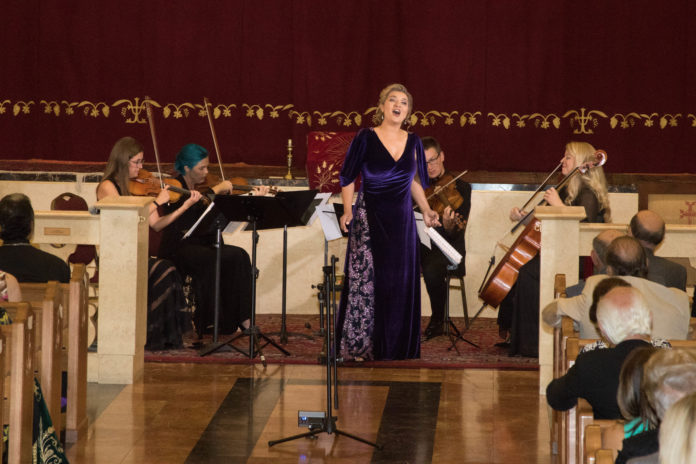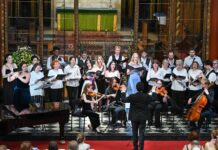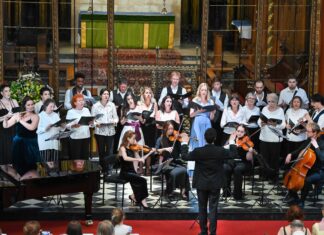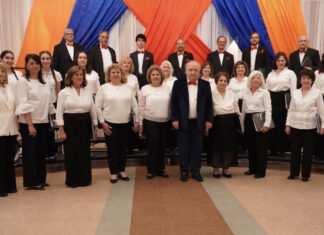BURBANK, Calif. — The signature sounds of Armenian music composed over the course of centuries reverberated through the ornate edifice of the St. Leon Cathedral as award-winning operatic soprano Isabel Bayrakdarian sang rich cultural songs and sacred hymns in an emotionally moving and sophisticated performance in honor of the 100th anniversary of Armenia’s First Republic and the 2,800th anniversary of Yerevan Erebuni on Sunday, September 23.
Trademark songs by Komitas, Sayat Nova and Aram Khachaturian were brought to the forefront by the Grammy-nominated and world renowned Bayrakdarian, who performed with the University of California, Santa Barbara (UCSB) String Quartet, featuring Josefina Vergara, violin, Jessica Guideri, violin, Jonathan Moerschel, viola, Jennifer Kloetzel, cello, in an event sponsored by the Western Diocese of the Armenian Church of North America’s Zvartnots Cultural Committee, and under the auspices of Archbishop Hovnan Derderian, Primate.
The carefully curated religious and cultural selections reflected a deeply layered history of Armenian music from different time periods and genres, including medieval sacred music, the 17th-century troubadour songs of Sayat Nova, the 19th century folk songs of Komitas Vartabed and the 20th century classical gusto of Khatchaturian. Each tasteful piece was presented with a spiritual soul that fulfilled the Armenian spirit of the standing-room-only audience. Wide in range — from the celebratory Kamancha by Sayat-Nova to the liturgical Soorp Asdvadz — the concert highlighted the beautiful complexities of Armenian music.
“I believe an artist’s identity plays a vital role in the orientation of their creative compass,” commented Bayrakdarian, associate professor of voice at UCSB. “For me, this direction is largely guided by the Armenian music that has nourished and sustained my soul from a young age.”
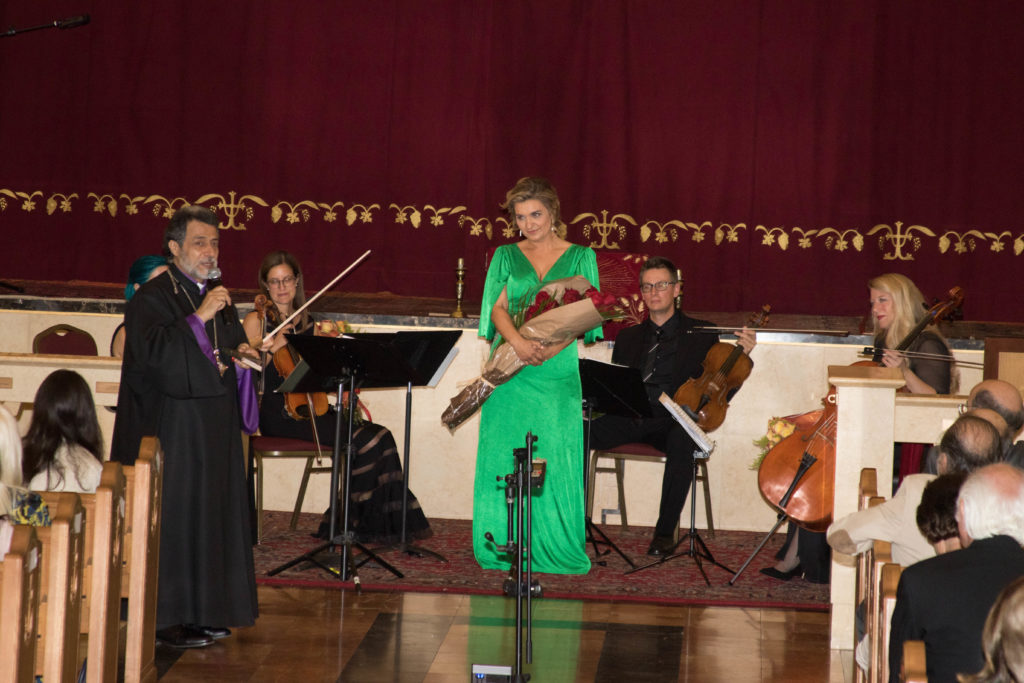
Along with musical pleasures, Bayrakdarian also created a space for reflection as the Armenian people celebrate the milestone anniversaries of the First Republic and the ancient city of Yerevan/Erebuni. Culling from various poignant points in the Armenian musical tradition, she presented an all-encompassing performance, underscoring the important role of religious hymns.



